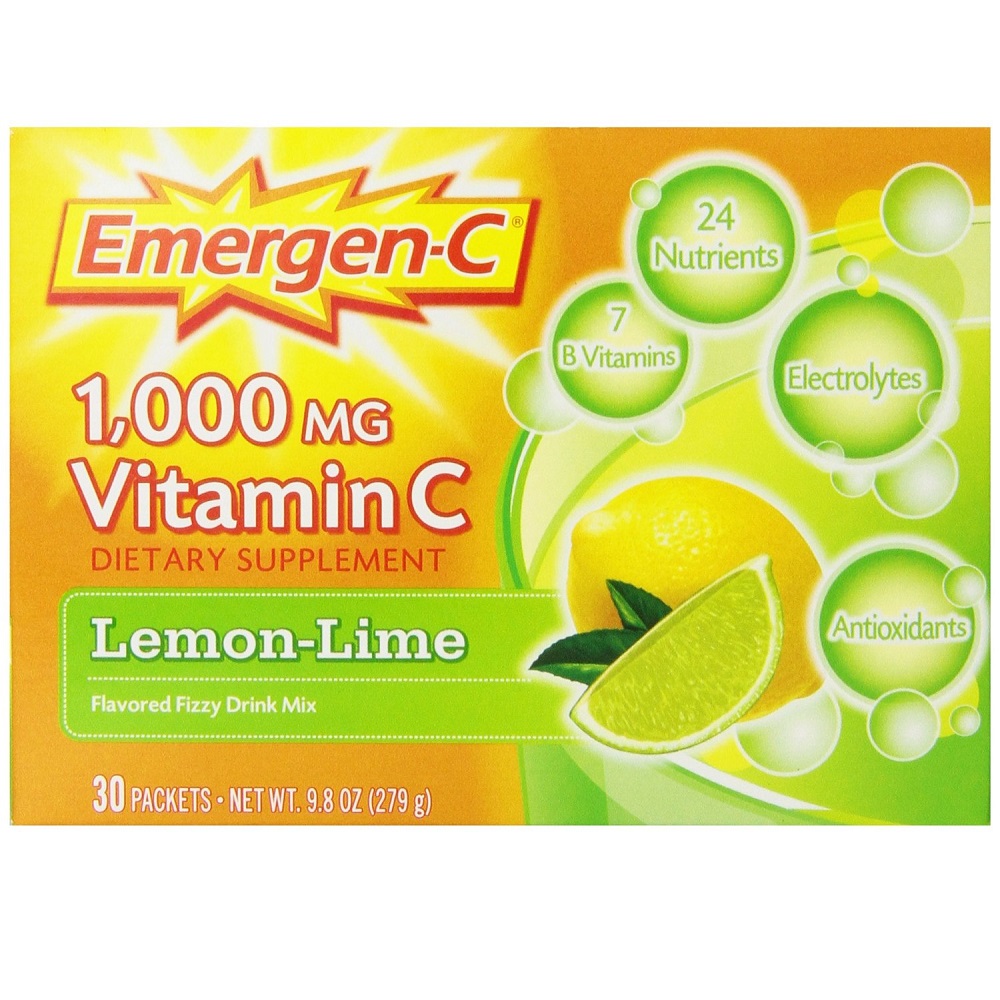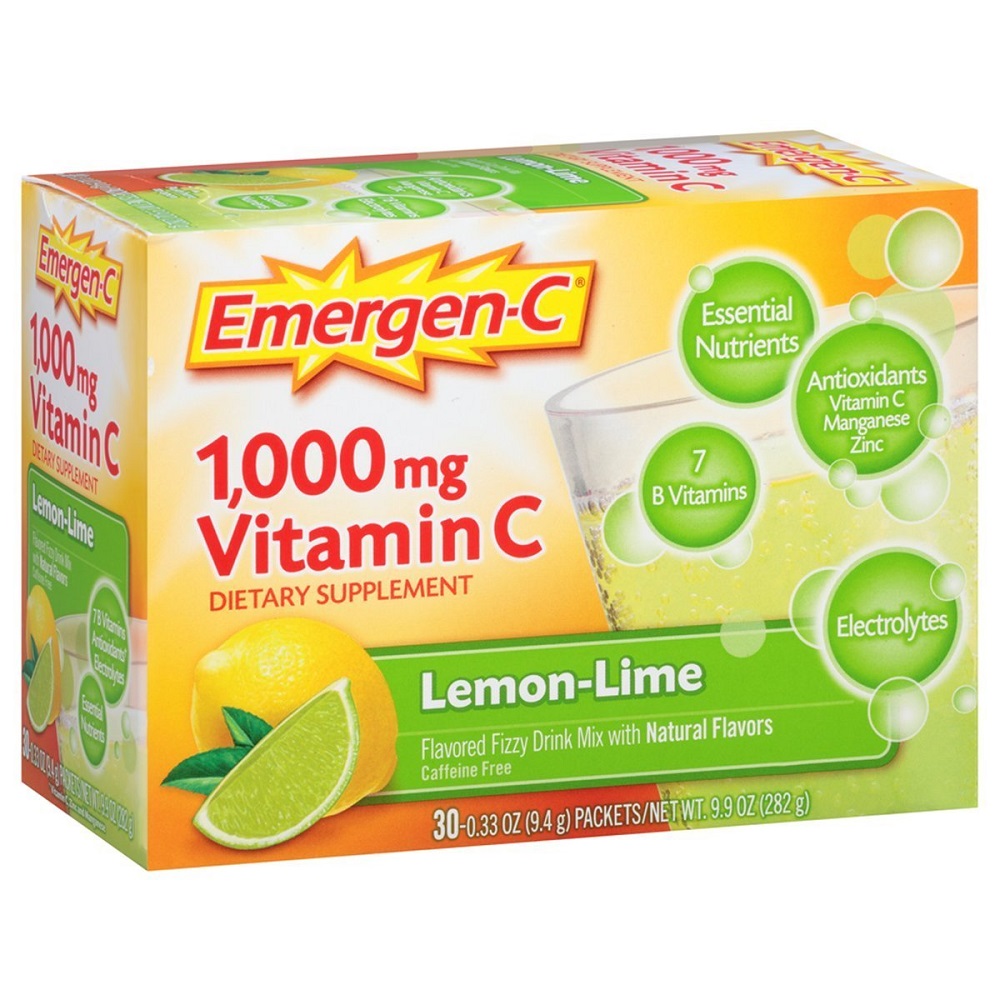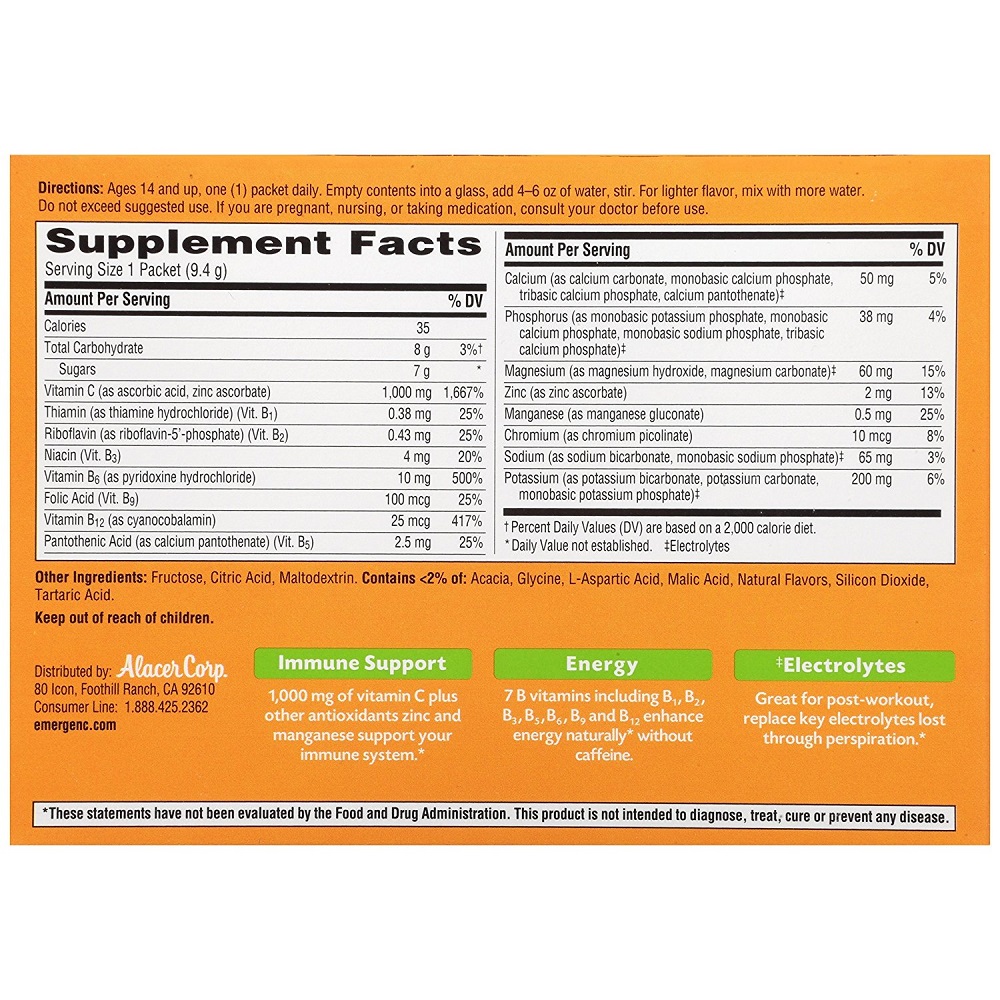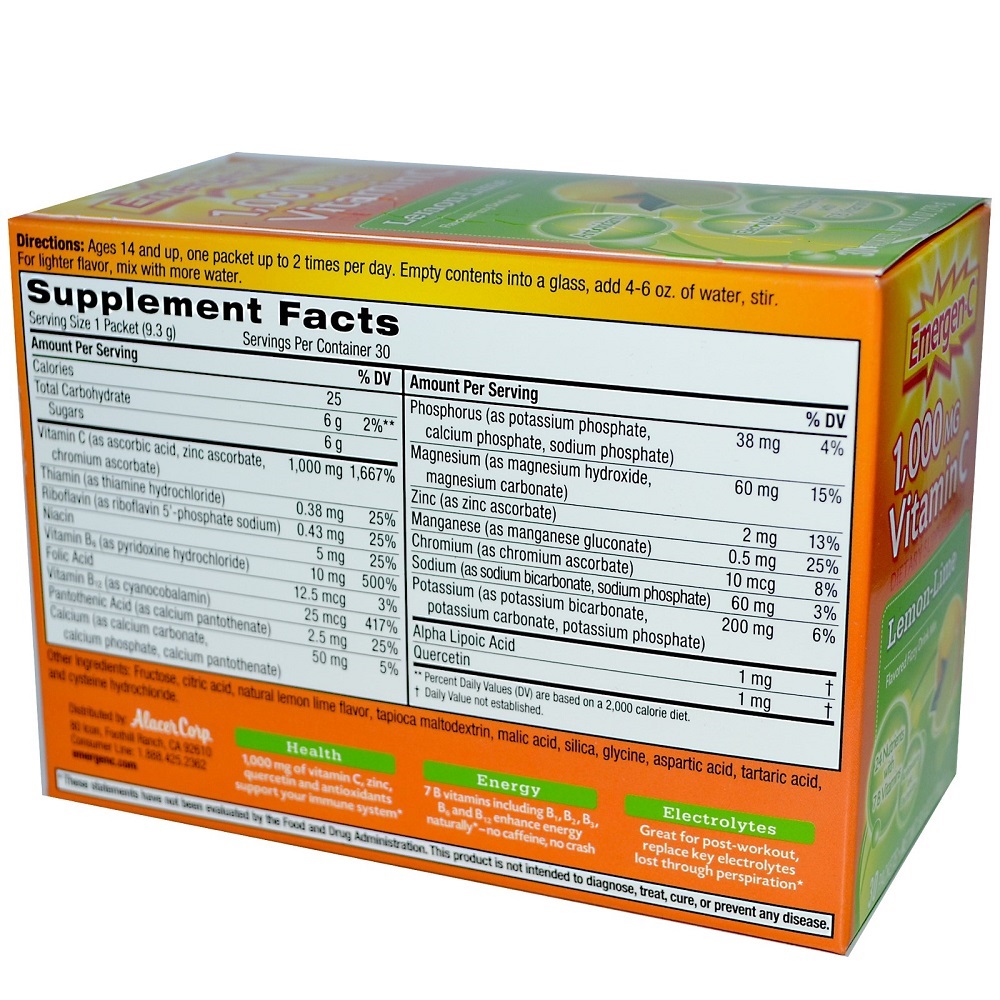Ingredients
- Click on any Ingredient below to learn more about it at NutraWiki
| Calories | A calorie is a unit of energy. In nutrition and everyday language, calories refer to energy consumption through eating and drinking and energy usage through physical activity. |
|---|---|
| Carbohydrate | Carbohydrates are one of the main types of nutrients. They are the most important source of energy for your body. |
| Sugars | Sweetener Derived from Natural Sugar Cane |
| Vitamin C | Vitamin C is an antioxidant found in fruits and vegetables. It is important for your skin, bones, and connective tissue. It promotes healing and helps the body absorb iron. |
| Thiamin | Vitamin B1 also known as Thiamine or Thiamin is a water-soluble vitamin, it is part of the B vitamin family. B vitamins support adrenal function, help calm & maintain a healthy nervous system, and are key for metabolic processes. |
| Riboflavin | It is one of the essential B vitamins, known to help support adrenal function, help calm and maintain a healthy nervous system, and facilitate key metabolic processes, including helping to turn food into energy. |
| Niacin | Niacin helps in creating sex hormones for people suffering through sexual disorders like impotence and erectile dysfunction. Vitamin B3 performs the important function of converting proteins, carbohydrates and fats into energy. |
| Vitamin B6 | Vitamin B6 plays an important role in refurbishing the immune system of the human body to the required functional level. |
| Folic Acid | Folic acid helps your body produce and maintain new cells, and also helps prevent changes to DNA that may lead to cancer. Folic acid is needed for the proper development of the human body. It is also used to prevent heart disease |
| Vitamin B12 | Vitamin B12 is applied to the skin either alone or in combination with avocado oil for psoriasis and eczema. |
| Pantothenic Acid | Vitamin B5 is very good at strengthening the immune system of the human body. |
| Calcium | Taking calcium by mouth is effective for preventing and treating bone loss and osteoporosis. |
| Phosphorus | Phosphorus is a mineral that makes up 1% of a person’s total body weight. |
| Magnesium | Magnesium is required for the proper growth and maintenance of bones. Magnesium is also required for the proper function of nerves, muscles, and many other parts of the body. |
| Zinc | Zinc is used for boosting the immune system, treating the common cold and recurrent ear infections, and preventing lower respiratory infections. |
| Manganese | Manganese is an essential nutrient involved in many chemical processes in the body, including processing of cholesterol, carbohydrates, and protein. |
| Chromium | Chromium helps to move blood sugar (glucose) from the bloodstream into the cells to be used as energy and to turn fats, carbohydrates, and proteins into energy. |
| Sodium | Sodium is an element that the body needs to work properly. |
| Potassium | It helps nerves and muscles communicate. |
| Fructose | Used in foodstuffs and in medicine chiefly in solution as an intravenous nutrient. |
| Citric Acid | Citric acid is very similar to Ascorbic acid(Vitamin C) but is not the same thing. There is no Vitamin C in Citric acid. |
| Maltodextrin | Maltodextrin is a starch-derived food additive that is commonly used as a thickening or filling agent in a range of commercial foods and beverages. |
| Acacia | Acacia is a source of dietary fiber. It tends to make people feel full, so they might stop eating earlier than they otherwise would. This might lead to weight loss and reduced cholesterol levels. |
| Glycine | Glycine is an amino acid, a building block for protein. It is not considered an “essential amino acid” because the body can make it from other chemicals. |
| L-Aspartic Acid | Like all amino acids, your body can use aspartic acid to provide your cells with energy; the cells burn it to generate ATP, or adenosine triphosphate, which is a cellular energy currency. |
| Malic Acid | Taking malic acid supplements is beneficial for conditions such as fibromyalgia and chronic fatigue syndrome. It can help with oral hygiene as well. |
| Natural Flavors | Natural flavors are created from anything that can be eaten (i.e animals and vegetables), even if those edible things are processed in the lab to create flavorings. |
| Silicon Dioxide | Silicon dioxide, also known as silica (from the Latin silex), is a chemical compound that is an oxide of silicon with the chemical formula SiO2 |
| Tartaric Acid | The acid is said to act as both an antioxidant and an anti-inflammatory which can help bolster the immune system and promote overall wellness. |






Reviews
There are no reviews yet.